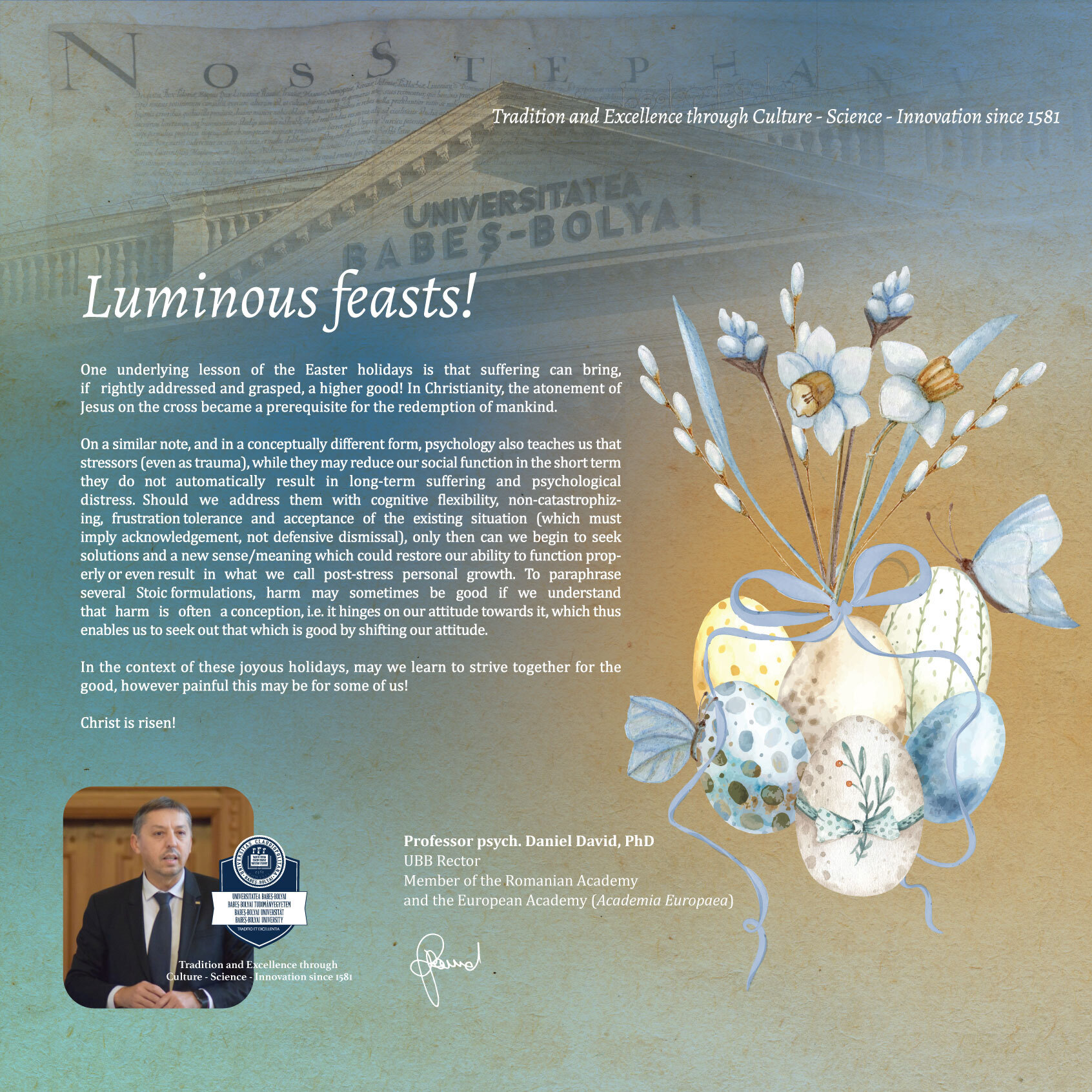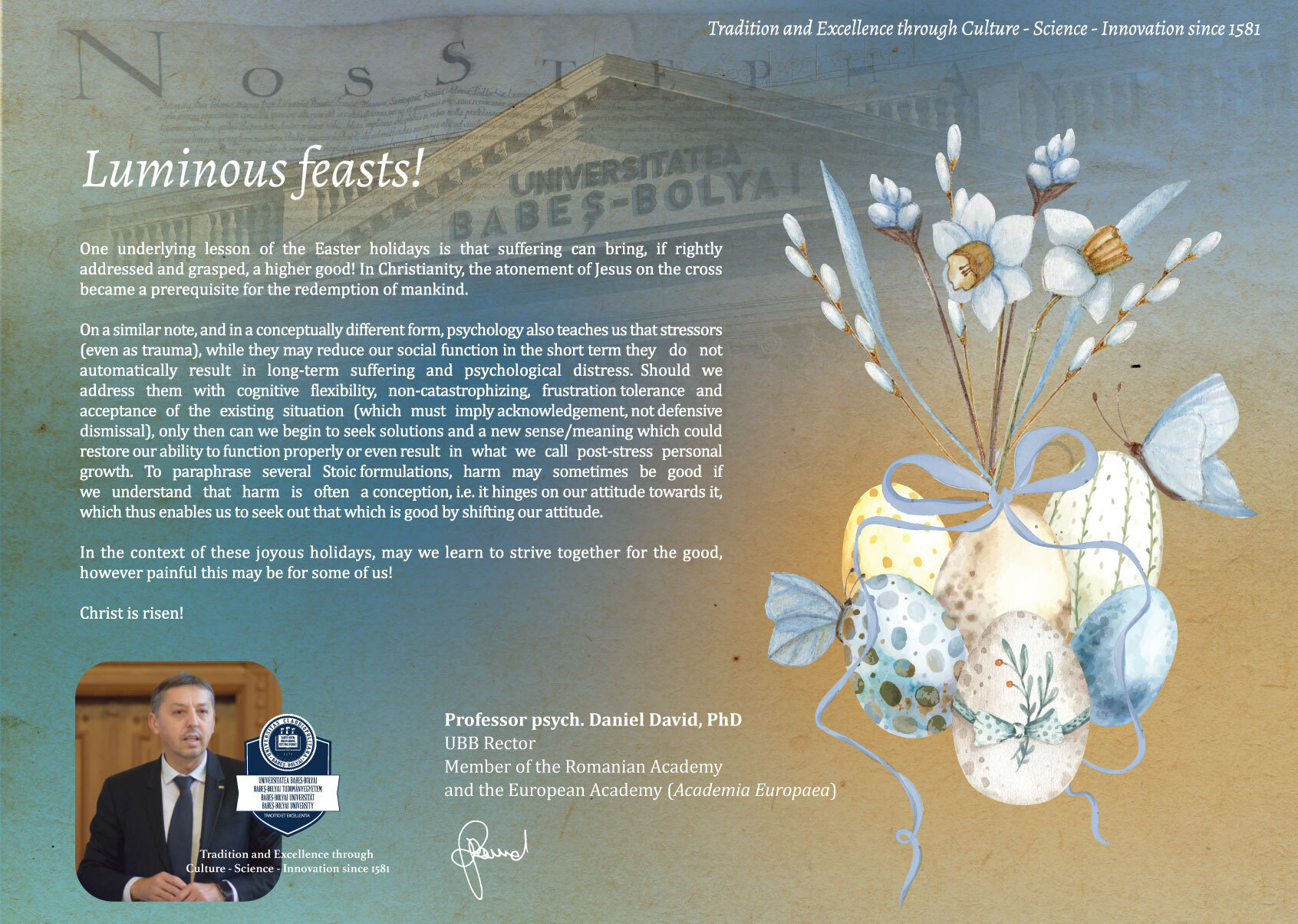

One underlying lesson of the Easter holidays is that suffering can bring, if rightly addressed and grasped, a higher good! In Christianity, the atonement of Jesus on the cross became a prerequisite for the redemption of mankind.
On a similar note, and in a conceptually different form, psychology also teaches us that stressors (even as trauma), while they may reduce our social function in the short term, they do not automatically result in long-term suffering and psychological distress. Should we address them with cognitive flexibility, non-catastrophizing, frustration tolerance and acceptance of the existing situation (which must imply acknowledgement, not defensive dismissal), only then can we begin to seek solutions and a new sense/meaning which could restore our ability to function properly or even result in what we call post-stress personal growth. To paraphrase several Stoic formulations, harm may sometimes be good if we understand that harm is often a conception, i.e. it hinges on our attitude towards it, which thus enables us to seek out that which is good by shifting our attitude.
In the context of these joyous holidays, may we learn to strive together for the good, however painful this may be for some of us!
Christ is risen!
Prof. psych. Daniel David, PhD

